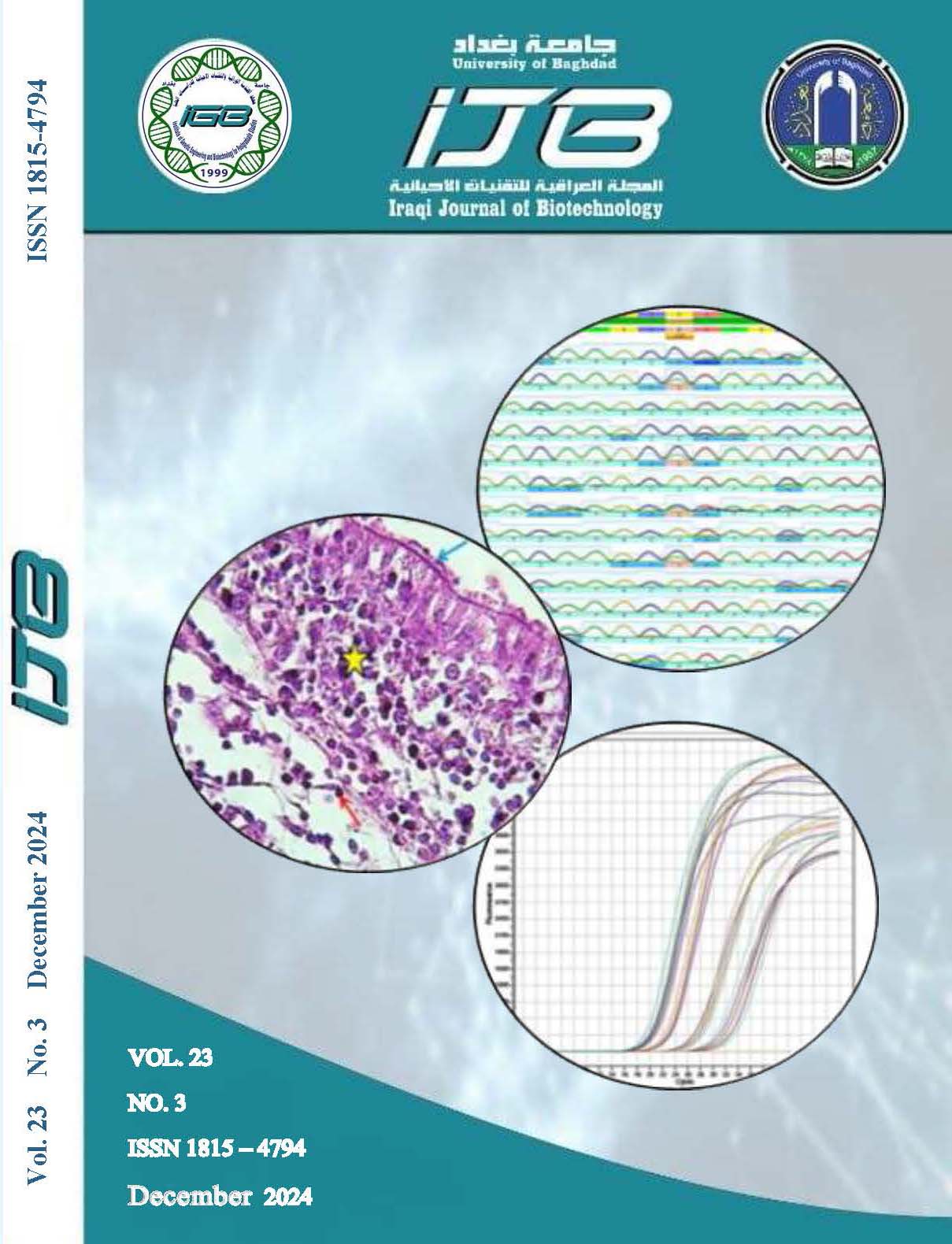The Role of ABCB1 and ABCB6 Transporter Genes in Paclitaxel Resistance of Breast Cancer Cells
Abstract
Breast cancer (BC) is a highly malignant neoplasm and is fatal in women around the world. The increase in drug dosage does not improve therapeutic results and may potentially result in severe adverse effects. Many cancers in humans are commonly believed to exhibit elevated levels of drug resistance that have been attributed to multidrug resistance genes. The aim of the study to excess expression of ATP-binding cassette transporters (ABC): including ABCB1 and ABCB6, is a primary factor that contributes to the increased effluent of cell-toxic drugs and subsequent resistance to treatment and failure in various types of human BC. Therefore, the current work aims to explore the role of ABCB1 and ABCB6 in chemoresistance activity against paclitaxel in breast cancer cells. The cell was evaluated by a cytotoxic assay and quantitative RT-PCR to measure how much ABCB genes are expressed. The study revealed that the breast cancer cell lines AMJ13 and MCF-7 subjected to paclitaxel showed a highly significant resistance (IC50: 175.6µg/ml and 34.73µg/ml, respectively, P-value: 0.0001), that was associated with their overexpression levels of ABCB6, while ABCB1 showed inconsistent expression in both cell lines. It was concluded that the ABCB6 gene plays an important role in resistance to paclitaxel and, as a result, may provide a possible therapeutic target to help BC patients overcome resistance to paclitaxel.


